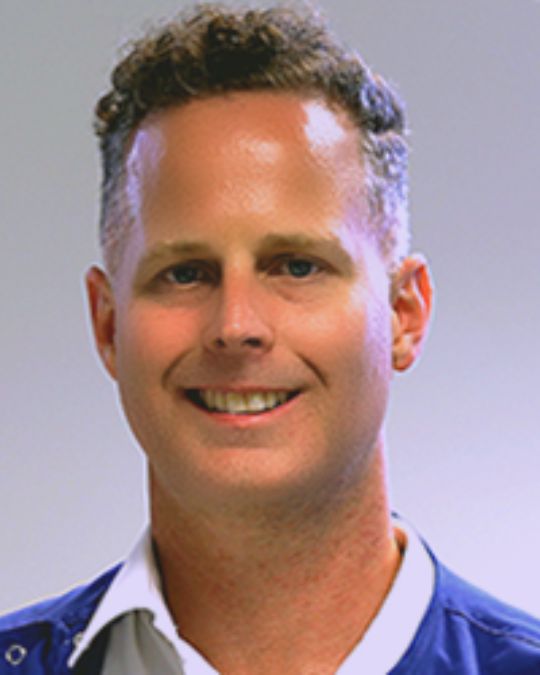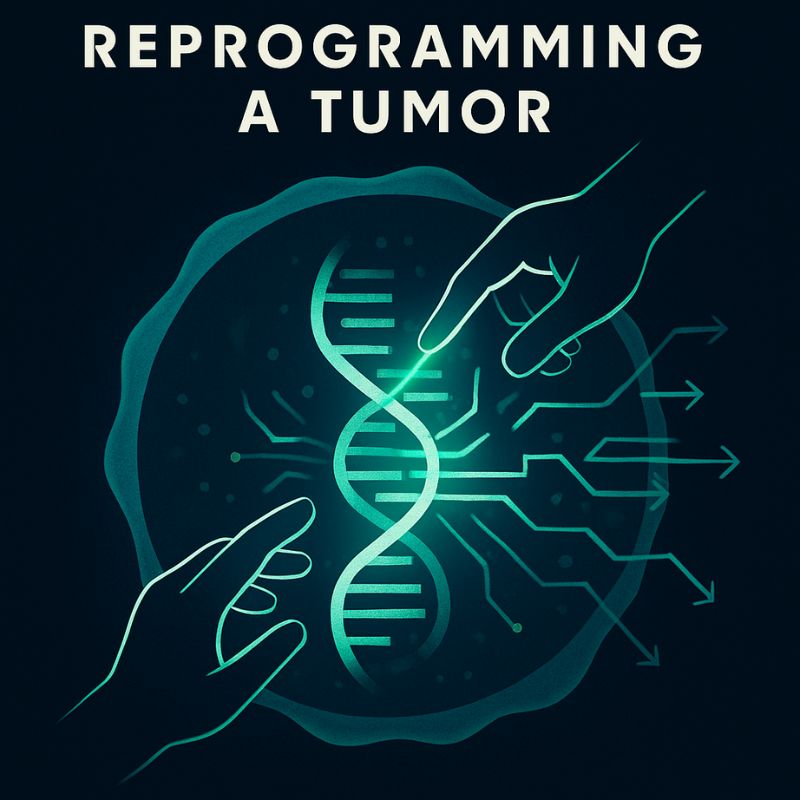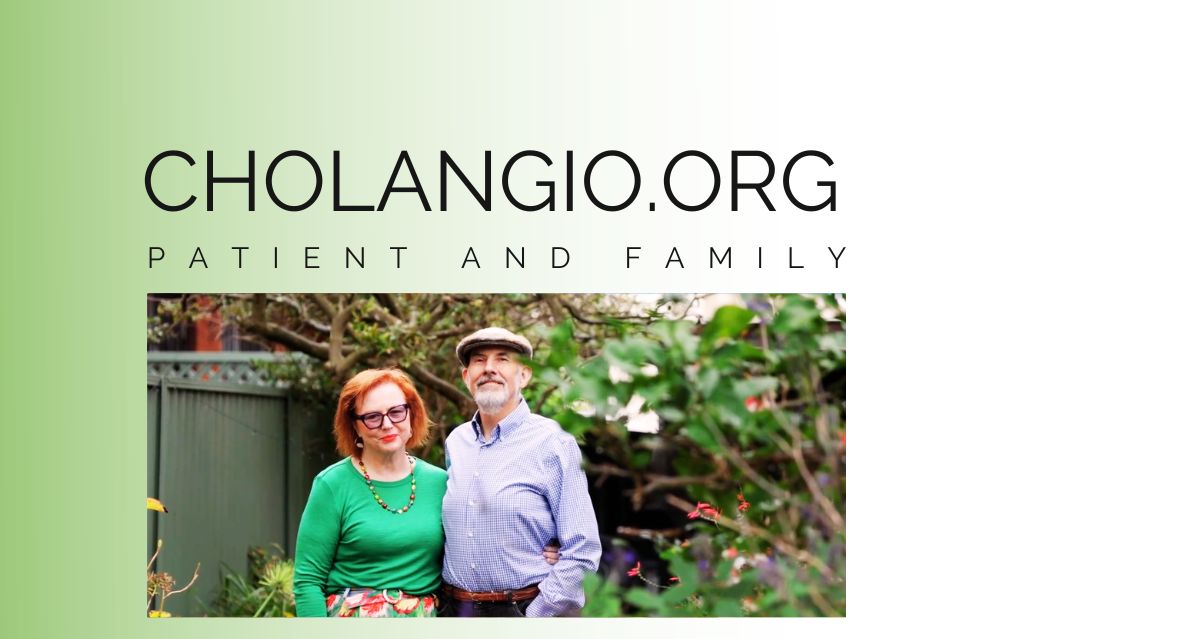Reprogramming Bile Duct Cancer Tumors
How biomarkers and mini-tumours are guiding smarter treatment — and activating a survival-first response system.

CHOLANGIO TODAY: OUR VOICE
Breaks Silence. Spotlights What Works.
One mission — Save More Lives.
By Steve Holmes
This article
”A Line Crossed”
How our community is partnering with a research project.
28th May 2025
We’ve just taken an important step forward.
Not just in research — but in culture, in strategy, and in how patients lead the response.
Over the past few months, I’ve worked closely with a proposed research project — not simply to endorse it, but to shape how we, as a Foundation, embed patient culture into its design, execution, and impact.
The lead researcher, Benjamin Dwyer, brings not only deep expertise in cholangiocarcinoma — but rare alignment with our standards, urgency, and cultural discipline.
That matters. Because in our world, culture isn’t a side story.
It’s the operating system.
This isn’t just a research collaboration to tick the “patient box.”
It’s a collaboration designed to build with us — from day one to day done.
“We’re not just supporting research. We’re redefining what research means.” — SteveH
Who is Ben Dwyer?

Dr. Benjamin Dwyer is a research fellow in Curtin University’s School of Pharmacy and Biomedical Sciences, where his focus spans cancer biology, tumour evolution, and the molecular mechanisms that drive disease. But what sets Ben apart isn’t just his scientific expertise — it’s his understanding of the systemic gaps around the science.
He’s one of the few researchers who recognises that survival isn’t just about biology — it’s about response. With prior experience embedded in the UK cholangiocarcinoma research ecosystem, Ben brings lived understanding of the disconnect between research and reality — and is actively working to bridge it.
Ben has worked closely with leading cholangiocarcinoma organisations, including AMMF in the UK, and was a featured speaker at the American Cholangiocarcinoma Foundation’s 2023 annual conference. He brings more than credentials — he brings cultural alignment. The kind that can’t be taught, only recognised.
“I’m keen to promote cholangiocarcinoma research — not just in my lab, but across Australia.”
— Ben Dwyer
A Simple Roadmap — Where This Collaboration Fits
This collaboration with Dr. Ben Dwyer is more than an alliance — it’s a live execution of the Doctrine in action. It maps to the core question we always ask:
“Does this help today’s patient — today?”
And here, the answer is yes.
Now we turn that answer into a system. One step at a time. With structure, clarity, and action.
A simple roadmap:
Patient-aligned research begins → tumour DNA is analysed → mini-tumours (organoids) are grown → treatments are tested → responses are measured → cell behaviour is reprogrammed using RNA (to help treatments work better) → findings are integrated into real-time patient response models → outcomes guide future clinical trials and national cancer strategy.
RNA Reprogramming: RNA acts like a set of instructions inside our cells — telling them what to do. In this research, scientists test new ways to send custom instructions into cancer or immune cells to change how they behave. The goal? To help treatments succeed where they would normally fail — by retraining the system from within.

What We’re Building Together
This research project is not just a study — it’s a patient-aligned, precision-driven system designed to transform how cholangiocarcinoma is understood, treated, and responded to in real time.
At its core, this project uses tumour DNA analysis and lab-grown mini-tumours — called organoids — to understand which treatments work, why they fail, and how to do better. For the first time in cholangiocarcinoma, we’ll test whether these personalised tumour models can reliably mirror each patient’s treatment response. If they do, we can begin testing smarter combinations — turning failed responses into successful ones.
But it doesn’t stop there.
The project also explores a new therapeutic frontier: delivering RNA-based “instructions” into tumour or immune cells to reprogram how they behave. It’s built to move beyond observation and into action — not just learning what happens, but influencing it.
Backed by a clear roadmap, integrated into clinical settings, and already aligned with state and national genomics goals, this project is positioned to deliver impact that is timely, translational, and patient-relevant.
“We built a culture where no one needs to fight alone, but responds together — where necessity drives a survival system that works. That’s a philosophy that needs no explanation.”— SteveH
Supporting Research That Meets the Moment
We don’t join research casually.
We join what’s ready — focused, fast-moving, and aligned with how patients survive today, not just someday.
Not every idea deserves deployment.
Not every proposal earns response.
The research we support must meet three non-negotiables:
Strategic urgency
Patient-aligned design
Execution over aspiration
That doesn’t mean promising a cure tomorrow.
It means building systems that move as fast as the lives they’re meant to save.
It means shortening the distance between discovery and delivery.
And it means patients — through the Foundation and in collaboration with leaders like Ben Dwyer — aren’t just consulted.
They’re part of the execution.
Cholangiocarcinoma research is already rare.
Execution-ready, Australian-led cholangiocarcinoma research? Rarer still.
This is the kind of project our community can stand behind — not out of hope, but out of strategy.
So when Ben Dwyer’s proposal arrived — focused, fast, aligned —
we didn’t offer help.
We deployed.
This is research that responds.
This is how we win. — SteveH
The Response
Ben’s proposal didn’t need rewriting.
It needed reinforcement.
Our team worked within his structure — not to steer, but to sharpen.
We translated technical language into community-first clarity. We aligned every word with what patients, reviewers, and funders actually look for: precision, relevance, and survival value.
We refined the five community assessment sections
We clarified the link between short-term action and long-term benefit
We built a bridge from Ben’s intent to ours — grounded in lived experience, strategic focus, and real-world execution
This wasn’t about polishing.
It was about making every word count — because survival doesn’t give you extra time.
“Care helps us cope. Response helps us win.”
— How We Win Doctrines, p. 2 — SteveH
The Deployment: Patient Response Unit (PRU)
Once the revising and writing were done, we moved to what matters most: our North Star —
Does what we do, here, today, help today’s patient win?
The answer was yes. So we began planning to embed a dedicated Patient Response Unit (PRU) — a core pillar of our “How We Win” strategy designed to offer today’s patients not just hope, but meaningful participation – a chance to move the survival needle more in our favour.
PRUs are made up of people who were diagnosed as patients or caregivers —
but diagnosis doesn’t erase their real world professions, expertise and experience.
We recruit, reactivate, and redeploy that expertise — alongside lived experience — into professionally-led Patient & Caregiver Response Units – teams built to solve and bridge what the system can’t.
These are not support groups.
They are not awareness campaigns.
They are not symbolic.
They are focused, task-driven teams — grounded in strategic intent, forged through urgency, and built to deliver breakthroughs now, not someday.
PRUs operate as:
- A bridge between stalled systems and real-world patient needs
- Rapid-response teams, deployed where the system fails us
- Strategic builders, embedding solutions into the OPR system before moving to the next challenge
OPR stands for Optimal Patient Response — our behind-the-scenes operating system (OS) and pathway built to outperform the limitations of today’s standard of care for cholangiocarcinoma patients.
It helps us outpace cholangiocarcinoma through smarter decisions, faster innovations, and a community-led response culture that is already a living, evolving survival system in its own right.
PRUs enhance researchers’ capacity to see, understand, and engage with the disease at the frontline of the challenge — while keeping pressure on for relevance, speed, and real-world value.
Where others hesitate, PRUs move.
Where the system delays, they deliver.
We put to work what the system can’t.
This is how expertise and lived experience become infrastructure.
This is how we win.
People become patients. Diagnosis does not erase their real-world professional expertise or experience
We recruit, reactivate, and redeploy that. — SteveH
What It Means
This isn’t a press release.
It’s a signal.
That research can move differently.
That patients aren’t spectators — they’re builders.
That when the science is ready, we don’t wait.
We move.
We build.
We carry.
Until the solution lands where it belongs:
in the lives of those who need it most.
You can learn more about our how we win culture:
Interested in Joining This PRU Team?
If you’re interested in becoming a team member, or would like to lead or co-lead on this PRUs initiative, I’d love to hear from you.
Email: steve@cholangio.org
Call/Text Me: (+61) 414 515 322
Let’s have a chat about what’s involved.
From personal experience, it’s a proactive distraction with purpose, and you’ll get to meet and interact with some truly amazing people.
I sincerely hope this update helps you feel the momentum —
We’re working hard, we’re working smart, and most importantly —
You are not alone.
Are You a Clinician, Healthcare Specialist, Researcher — or Someone Who Can Support or Fund Our PRU Initiatives?
If you can contribute your expertise, resources, or funding to support our PRUs (Patient Response Units) — don’t be shy.
We need you, and so do the patients we serve.
Whether you’re saving lives, studying the data, or ready to fuel the mission — your involvement has immediate impact.
Email: steve@cholangio.org
Call/Text Me: +61 414 515 322
Let’s have a conversation — and make something real happen.
— Steve
You and Me. We’re in this same boat together
Some know how to row. Some don’t — yet.
Those who can must teach. Those who can’t must learn.
You don’t need to be perfect.
You just need to start rowing.
And keep rowing —
until together, we find the rhythm that moves us forward.
We can only give our best. And that is enough. — SteveH
What Is Cholangio Today?
This is not awareness.
This is not care.
It is the expression and execution of our culture —
a living survival system.
It’s where we patients take the mic —
Not to tell stories.
To lead.
To shape systems.
To spotlight what works.
To share systems that deliver.
To extend response beyond care — through innovation.
This is not support.
This is how we win.
See a blind spot the system keeps missing?
Email: steve@cholangio.org






This sounds like a major breakthrough; or at least the start of one. When will it be in clinical trial I have a mentee in Germany who is running out of options.
Hi Gregory,
Appreciate you reaching out — and yes, this may not offer a breakthrough that’s trial-ready today, but it does offer something we rarely get: the chance to shape what’s coming next.
This project doesn’t promise a direct curative option for today’s patient — but it opens the door for us to participate in the creation of something that could.
It crosses a line in the sand — where patients and caregivers are no longer left waiting in the dark.
We now have the opportunity to stay informed as it evolves — to learn along the way, instead of sitting blindfolded on the sidelines, holding our breath, listening to our cholangio clock ticking down.
That in itself is progress — and hope with structure — something we’re usually denied.
That said, if your mentee in Germany is running out of options, I’m happy to share what we’re learning and explore anything that may help them directly.
Always happy to help if I can, Greg — feel free to text me or reach out on Messenger anytime.
Warmly,
Steve